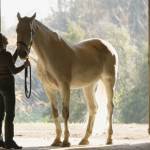Horse Management: Beyond the Basics

Horse owners need to make sure their equine charges have adequate pasture and/or hay; supplemental feed as required to support growth or performance; plenty of fresh water; and a safe place to live. These are the basics, but responsible horse management requires attention to several other facets of the horse’s well-being. To keep your horse healthy and contented, be sure to consider these factors as well:
- Vaccinations. You can protect your horse against common diseases like tetanus, rabies, encephalomyelitis, influenza, and West Nile virus by asking your veterinarian to administer a series of vaccinations. Some immunizations require more than one injection; many require an annual booster. General guidelines are available from the American Association of Equine Practitioners (AAEP) at www.aaep.org. A local veterinarian can advise about specific disease protection in your particular area of the country. Even horses that never leave the farm need to be protected against common equine diseases; if you travel to horse shows or across state lines, you will need proof that your horse is current on certain vaccinations and blood tests.
- Hoof care. Just like human fingernails, a horse’s hooves grow constantly. Because the toe of the hoof grows somewhat faster than the heel portion, the untrimmed hoof slowly tips into a low-heel, long-toed position that begins to misalign the bones and tendons in the lower leg. In barefoot horses, the hooves naturally wear or break away to some extent, keeping the foot in approximate balance. When horses are shod, their hooves are not able to wear naturally and the angle of the hoof continues to change until the shoes are removed, hooves are trimmed, and the shoes are reset. This should be done at least every six weeks, even if the horse’s shoes still seem to be tight and in good condition. Barefoot horses should have their hooves trimmed and balanced on the same schedule. Young horses may need more frequent hoof care to prevent or correct misalignment. Getting regular hoof care by an experienced farrier is important in keeping horses sound. Owners who try to do their own trimming and shoeing are likely to make their horses uncomfortable at best, and can cause serious permanent lameness at worst. For horses that need a higher level of hoof-related nutrients, Kentucky Equine Research offers Bio-Bloom PS (Bio-Bloom HF in Australia) to provide additional support for hoof quality and growth.
- Dental care. Dropping feed, refusing to eat, fussing with the bit, throwing the head, and nervousness while being ridden can all be caused by dental problems, many of which can be avoided or corrected by regular visits from a veterinarian or equine dentist. Because of the shape of the horse’s jaws, the upper and lower teeth don’t meet or wear evenly, and sharp points and hooks frequently develop. An equine dentist can smooth the pointed edges with a rasp, eliminating feeding and behavior problems caused by discomfort. A dental exam should be done once or twice a year for mature horses, and more often in young horses as the permanent teeth replace deciduous teeth.
- Parasite control. Internal parasites are a fact of life for most horses. It’s hard to prevent an infestation, so parasite programs are aimed at keeping levels as low as possible. Effective oral paste dewormers are widely available and easy to use. Consult your veterinarian for guidelines on determining which parasites your horse may have, how often to deworm, and the best products to use.
- Grooming. Daily grooming has many benefits. Grooming sessions give you a chance to learn your horse’s personality; your horse will become more familiar with you; you will be able to find and treat minor injuries and skin ailments before they get out of hand; you may avoid problems like rain rot by keeping the skin clean and coat fluffed; your horse will get used to being handled and standing quietly. Picking out your horse’s hooves every day will make the farrier’s job much easier and will alert you to problems with feet and shoes.
- Exercise. Exercise for horses isn’t just fun; it’s essential for keeping horses healthy, sound, and strong. Pastured horses get some exercise just by moving around as they graze, but a regular work schedule is beneficial to most mature horses in good health. A word of caution: “weekend warrior” riding, where horses are idle for six days a week and then are ridden for several hours on a Saturday or Sunday, is probably worse than no exercise at all. Any program of exercise needs to begin with short periods of easy work, increasing both the time and effort required over a span of weeks until the horse is able to perform at the target level. It’s not necessary to ride every day to condition your horse, but you should aim toward working him at least 30 to 60 minutes or more, four or five days every week, to build and maintain fitness. The specific exercise plan will be different depending on the horse’s age, beginning condition, and performance goals.
- Companionship. Horses are herd animals by nature. Single horses may adapt well to living alone, or they may waste a lot of energy running fences, neighing, and looking anxiously for a friend. If at all possible, keep horses in groups of at least two animals, or pasture single horses where they can see other horses. You can be your horse’s best companion when you are near him, but for times when you are not by his side, consider getting a second horse (or pony or miniature horse); boarding a friend’s horse with yours; or getting your horse a non-equine buddy. Goats are traditional stable pets, but horses may also bond happily with cats, dogs, pigs, geese, ducks, or chickens.








